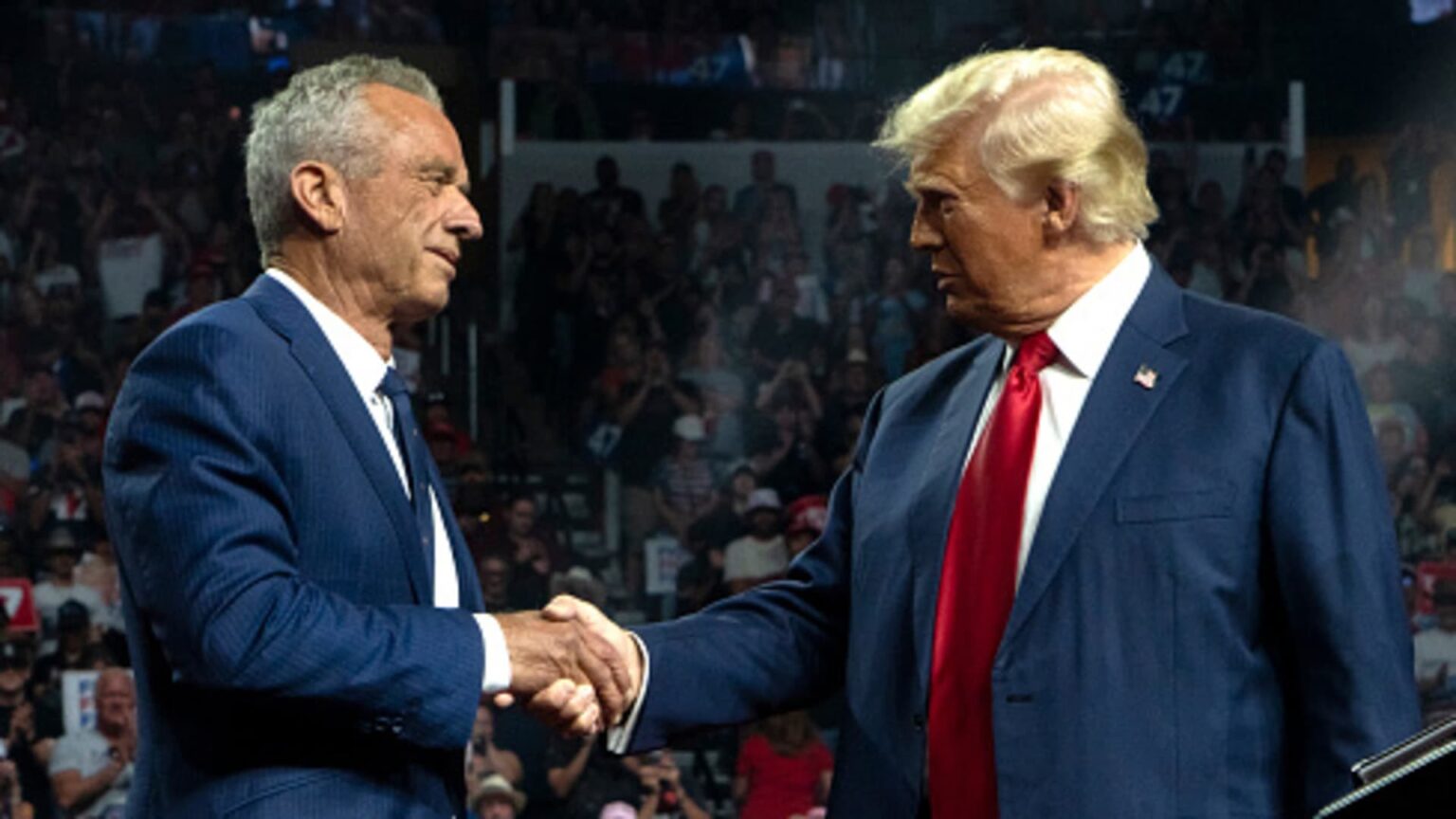Former independent presidential candidate Robert F. Kennedy Jr. will not appear on ballots in North Carolina and Michigan, appeals courts ruled in two separate decisions Friday.
Election authorities in the two swing states previously decided that Kennedy’s name would remain on their ballots, rejecting his request to withdraw from the race.
Friday’s rulings are good news for Republican presidential nominee Donald Trump. In North Carolina and Michigan, Trump polls better in a two-way race against Democratic nominee Kamala Harris than in a six-candidate race, according to polling averages from RealClearPolling.
When Kennedy suspended his long-shot campaign and threw his support behind Trump on Aug. 23, he said that he planned to remove his name from ballots in 10 swing states where Trump stood to benefit from the race shrinking to a head-to-head matchup with Harris.
But Kennedy’s plan was easier said than done. In three battleground states — North Carolina, Michigan and Wisconsin — state election authorities rejected Kennedy’s request to get off the ballot.
North Carolina’s State Board of Elections on Aug. 29 voted against the We The People Party, who nominated Kennedy in the state, deciding “it would not be practical to reprint ballots that have already been printed and meet the state law deadline to start absentee voting.”
Absentee ballots in North Carolina were scheduled to be mailed out starting on Friday, but that process has been halted in light of the state appeals court decision, which granted Kennedy’s request.
In a memo sent to North Carolina’s 100 county election directors, the state election board’s general counsel Paul Cox instructed the directors not to send out any ballots but to keep those they had already printed with Kennedy’s name.
He wrote that the board has not yet decided whether to appeal the ruling.
“The court has also ordered that the We The People party’s ballot line be removed (including Kennedy and [his running mate, Nicole] Shanahan),” Cox wrote. “Obviously, this will be a major undertaking for everyone. Our attorneys are reviewing the order and determining how to move forward. No decision has been made on whether this ruling will be appealed.”
Trump welcomed the North Carolina appeals court decision Friday afternoon in remarks to the Fraternal Order of Police in Charlotte.
“That sounds like a bad thing for [Kennedy]. It’s not. It’s actually a great thing,” he said. “He’s an incredible team player, and he didn’t want anybody to be voting his name, because, as you know, he fully endorsed us. He’s with us.”
“They [will] vote for me now. All of the Bobby people are going to vote for me,” Trump said.
But polls show that voters who plan to support a third-party candidate in North Carolina do not all vote for Trump when the race narrows to two candidates. While the Republican’s chances improve in a head-to-head matchup, Harris’ share of the vote also increases.
In a six-candidate race in the state, Trump and Harris are tied at 46.3%, according to RealClearPolling. In a head-to-head matchup, Trump narrowly leads Harris, 47.9% to 47.2%.
In Michigan, Kennedy’s original request was rejected due to state law, which according to Michigan Secretary of State Jocelyn Benson says minor party candidates cannot withdraw from the presidential race.
Kennedy filed a lawsuit against Benson over the decision, but a judge on Tuesday ruled that his name would stay on the ballot.
Friday’s appeals court decision reverses that ruling, granting Kennedy’s request to get off the ballot.
With Friday’s rulings, the only state still rejecting Kennedy’s withdrawal effort is Wisconsin.
The Wisconsin Elections Commission on Aug. 27 voted 5-1 to keep Kennedy’s name on its ballot. Kennedy on Tuesday filed a lawsuit challenging the decision.
Read the full article here










